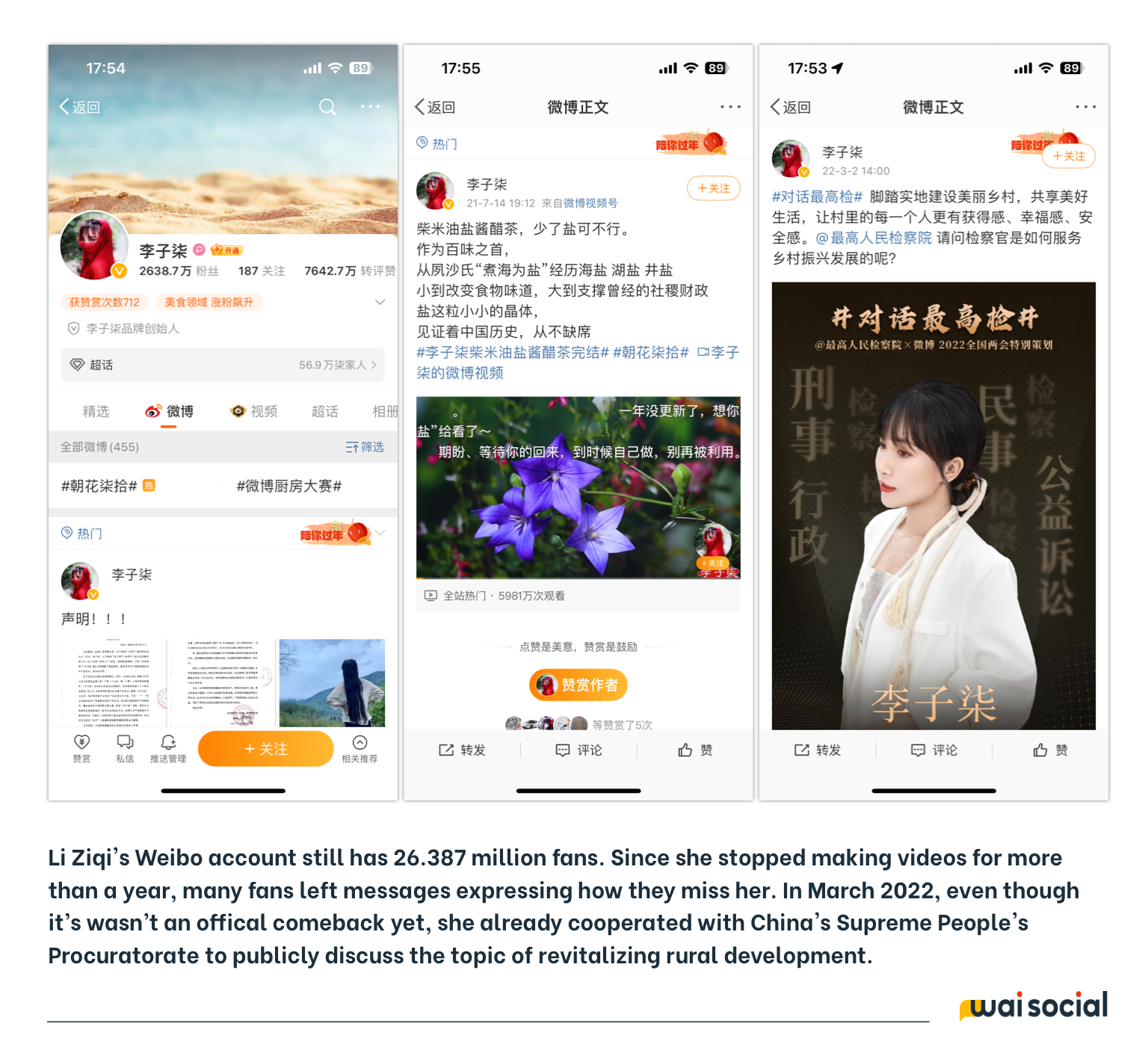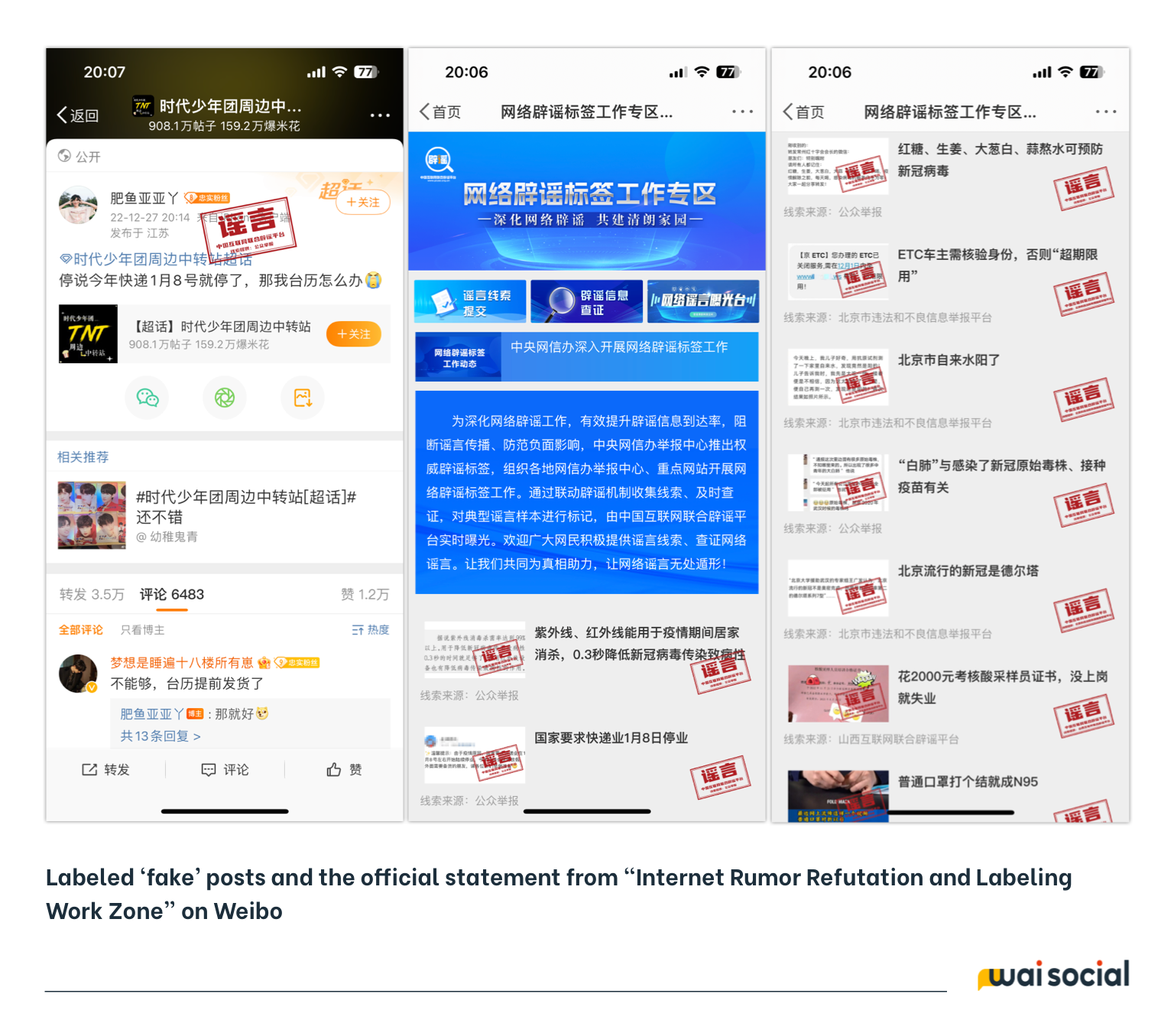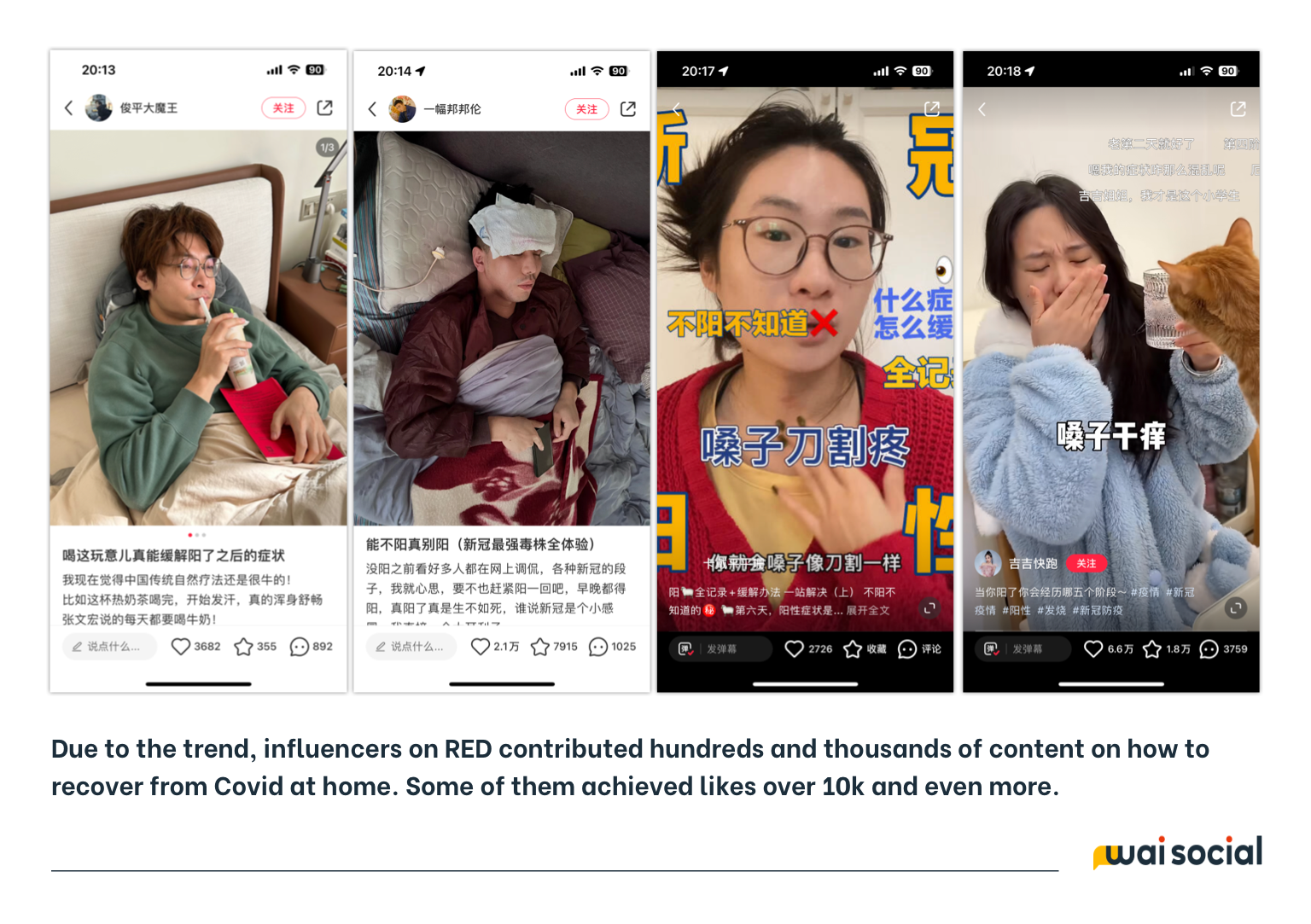China marketing latest trends: January 2023
This is a series from our weekly newsletter in which we cover consumers, marketing, platform, economic and tech trends that brands in China need to know. Get the latest TRENDS newsletter edition sent directly to your inbox instead of having to visit our website next time.
Three things to keep an eye on:
🌾 The timing of this internationally recognized influencer is interesting considering recent government initiatives concerning the agriculture industry
⛔️ Weibo is cracking down on fake news in a new way
🏡 The DIY-at home market continues to expand to medical related products
🌾 The big comeback of top Chinese influencer Li Ziqi
After more than 500 days of suspension, Li Ziqi reached a settlement with the MCN agency Hangzhou Weinian. These two parties will keep working together under conditions that Li Ziqi's company holds 99% of the shares, and owns the video and trademark copyrights. Li Ziqi, who built her influence by creating idyllic videos of rural life in the countryside of China and amassed nearly 100 million fans on multiple social media platforms, officially announced her upcoming comeback.
This news made her loyal fans rejoice, while at the same time, some commentators pointed out that in the past year, the social media field has changed drastically: not only the rapid rise of competitors, such as @Dianxi Xiaoge, who makes similar types of videos but also the novelty of live-streaming may be cooling down. Under such circumstances, can Li Ziqi regain her original glory?
Also worth noting, around the time of Li Ziqi’s comeback announcement Chinese President Xi Jinping proposed an initiative to strengthen the agricultural industry in rural areas. Is this just a coincidence? Or it is a message that saying Li Ziqi's comeback will largely take a role as a spokesperson for the government's publicity and promote agricultural development in the future? Let’s keep watching….
⛔️ Weibo new feature — stamping out fake news
Weibo has recently begun identifying fake news by placing a stamp on verified fake posts. Even after the original content is deleted by the account, it will still exist on the Weibo platform in a stamped form, open for comment and retweeting.
According to the statement on the "Internet Rumor Refutation and Labeling Work Zone” (网络辟谣标签工作专区), the Cyberspace Administration of China (CAC) hopes to use this method to further clean up the digital ecosystem and highlight the content of rumors through the process of "user reporting, official verification and finally, certification”, and spread the results widely.
This new move demonstrates the Chinese government's determination to control discourse on social media, and raises questions such as, how to define rumors, how to ensure that there is no misjudgment, and whether the content that is not labeled is 100% true, etc. Sure this update is mainly related to the chaos during the pandemic period, but will it be possible that brand content can also be stamped in the future, especially when it comes to some controversial topics (refer to the Dior Mamianqun Gate)? Will it trigger a greater crisis? This is something to keep a close eye on in 2023.
🏡 Home medical care — the next market for all things do-it-at-home
With China's sudden reopening in December, most families have experienced shortages of medicine and difficulties in seeking medical care due to avoiding going to the hospital because of fear of infection.
Sales of home self-help medicine, health care products, and food have skyrocketed on ecommerce sites like Taobao. We predict that products related to relieving coughs, boosting immunity, and eliminating symptoms of long COVID will have long-term appeal to Chinese consumers even beyond the initial wave.
According to speculation, eventually, 80%-90% of the Chinese population will be infected. We have reason to believe that most young people, even middle-aged and elderly people under the age of 65, will tend to heal themselves at home. For the second and third waves of infection in the future, people will still take similar defensive measures. Therefore, products and brands that can help families build up a strong immune system will become hot spots in the ‘at-home’ market.







